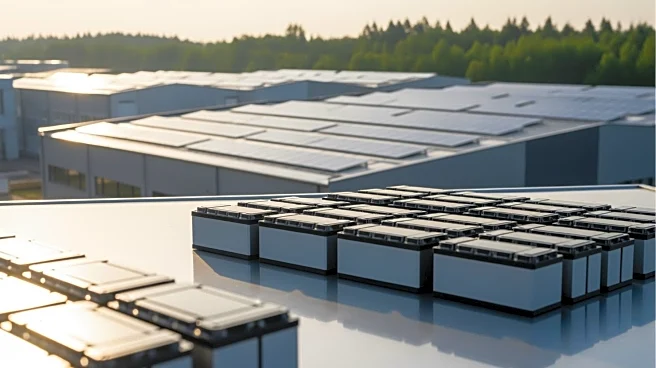What's Happening?
Toyota Motor Corporation has officially commenced production at its new battery plant in Liberty, North Carolina. This facility marks Toyota's first battery manufacturing site outside Japan and its 11th plant in the United States. The launch represents
a significant expansion of Toyota's manufacturing footprint in North America, with the plant expected to play a crucial role in the company's strategy to increase its production capabilities in the region. The facility is part of a $14 billion investment aimed at bolstering Toyota's presence in the U.S. automotive market, particularly in the electric vehicle sector.
Why It's Important?
The opening of Toyota's battery plant in North Carolina is a pivotal development for the U.S. automotive industry, particularly as the demand for electric vehicles continues to rise. This expansion not only strengthens Toyota's competitive position in the North American market but also contributes to the local economy by creating jobs and fostering technological advancements. The move aligns with broader industry trends towards electrification and sustainability, potentially influencing other manufacturers to increase their investments in similar facilities. Additionally, it underscores the strategic importance of North America in Toyota's global operations.
What's Next?
With the new plant operational, Toyota is likely to ramp up its production of electric vehicle batteries, supporting its goal to increase the availability of electric and hybrid vehicles in the U.S. market. This could lead to further investments in infrastructure and technology to enhance production efficiency and capacity. The plant's success may also encourage other automotive companies to consider similar expansions in the region, potentially leading to increased competition and innovation in the electric vehicle sector.
Beyond the Headlines
The establishment of Toyota's battery plant in North Carolina may have broader implications for U.S.-Japan trade relations, as it represents a significant investment by a Japanese company in the American manufacturing sector. This could strengthen economic ties between the two countries and encourage further collaboration in technology and innovation. Additionally, the plant's focus on battery production highlights the growing importance of sustainable energy solutions in the automotive industry, potentially influencing regulatory policies and consumer preferences towards greener technologies.















